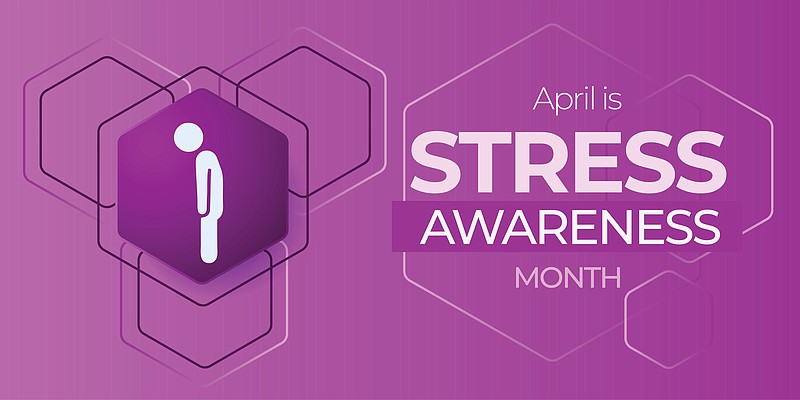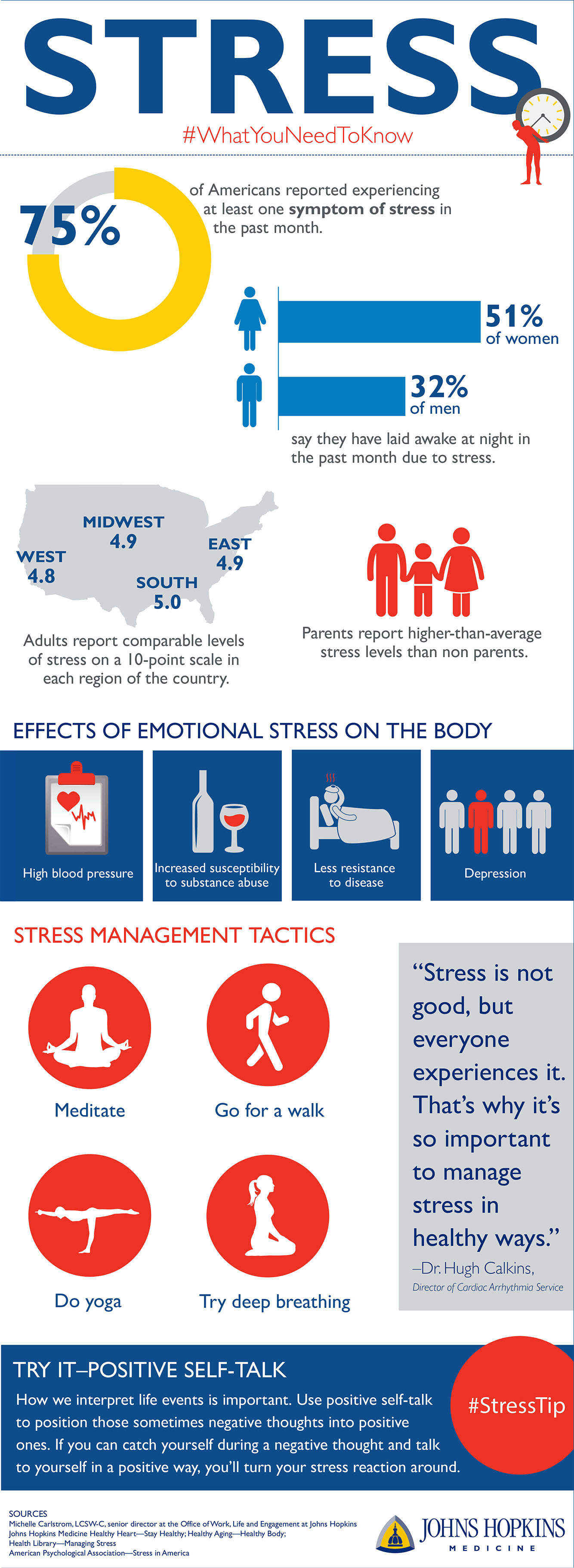TEXARKANA -- We all know the feeling, a combination of physical tension and mental pressure that's hard to shake off.
April is Stress Awareness Month, and experts are getting out the word that stress is more harmful than many realize -- but it can be treated and managed.
Stress can be defined as "a state of worry or mental tension caused by a difficult situation," according to the World Health Organization. Briana Taylor, director of student counseling and wellness services at Texas A&M University-Texarkana, has a simpler definition.
"Stress is the result of a stressor," Taylor said in a recent interview.
While stressors differ from person to person, common causes of stress include major life events such as getting married or divorced, and starting or losing a job. Everyday worries such as financial difficulty, conflict in relationships and work pressure can also cause stress.
"There's no shortage of stressors in our life today," Taylor said.
Stress is common in the United States, with 55% of Americans stressed during the day, according to a recent study cited by the American Institute of Stress. The global average is 35%.
Stress causes 57% of U.S. respondents to feel paralyzed, 63% of U.S. workers are ready to quit their job to avoid work-related stress, and chronic stress is common in the workplace, with 94% of workers reporting feeling stress on the job, according to the study.
Because stress causes the release of hormones that spark a "fight or flight" response, chronic, unmanaged stress can have harmful effects on physical health.
"When you have chronic stress, your body stays alert, even though there is no danger," according to MediLinePlus.gov, a service of the National Library of Medicine, which is part of the National Institutes of Health.
Over time, chronic stress puts sufferers at risk for health problems, including high blood pressure, heart disease, diabetes, obesity, depression or anxiety, skin problems such as acne or eczema, and menstrual problems
For those who already have a health condition, chronic stress can make it worse.
Often people experiencing stress cope through habits that in the short term "numb" the feeling, such as drug and alcohol use, overspending, or overeating.
Every student who seeks counseling at TAMU-T learns better coping skills.
"We want to give them tools to be able to manage whatever comes up between our sessions. So we work with all of our students to give them some ways of dealing with stress in and out of the classroom," Taylor said.
Basic stress management involves both mentally and physically signaling the brain that one is not in danger.
"We need to talk to our amygdala. That's the part of the brain that is kind of going off like a smoke alarm, if you will. And we need to give it information to let it know that it's not life-and-death kind of stress.
"So if I'm stressing about a test, I need to tell my brain, 'Hey, this is just the stress of a test. This is not a tiger chasing me,'" Taylor said.
Physically, stimulating the vagus nerve can calm stress symptoms.
"The vagus nerve is your 10th cranial nerve, and it actually innervates your face all the way down to your bottom. It's called 'the wandering nerve.' That's why we have the real physical reaction to stress. Because it is telling the whole body, 'You need to mobilize. There's a threat,'" Taylor said.
Actions such as gargling, singing, humming or sucking an ice cube -- anything that causes vibration in the throat -- can physically signal safety through the vagus nerve to the brain.
"The brain can't tell the difference, again, in the stress between that test and a tiger, so we have to tell it, 'Hey, if I've got time to sit here and suck on an ice cube, there's no tiger chasing me,'" Taylor said.
Body motion such as walking, dancing or other exercise produces the same effect. And deep breathing is the fastest way to create a relaxation response.
Stress seems to be becoming more prevalent, Taylor said, and one cause is the constant flood of information delivered via the internet.
"That's one of the things that we would recommend if you're getting overstimulated by the news or by what's happening in the world, to kind of take a social media break or or, you know, turn off the news and not focus on that exclusively," Taylor said.
In some cases, professional counseling and/or medication can also be beneficial for people suffering from chronic stress.
Whatever works for any individual to abate stress is worth the effort, Taylor said.
"Sometimes we can take those stressors out of our lives," she said. "Sometimes we can't. So it's helpful to learn ways to deal with them."


